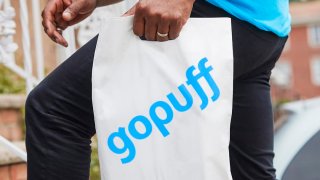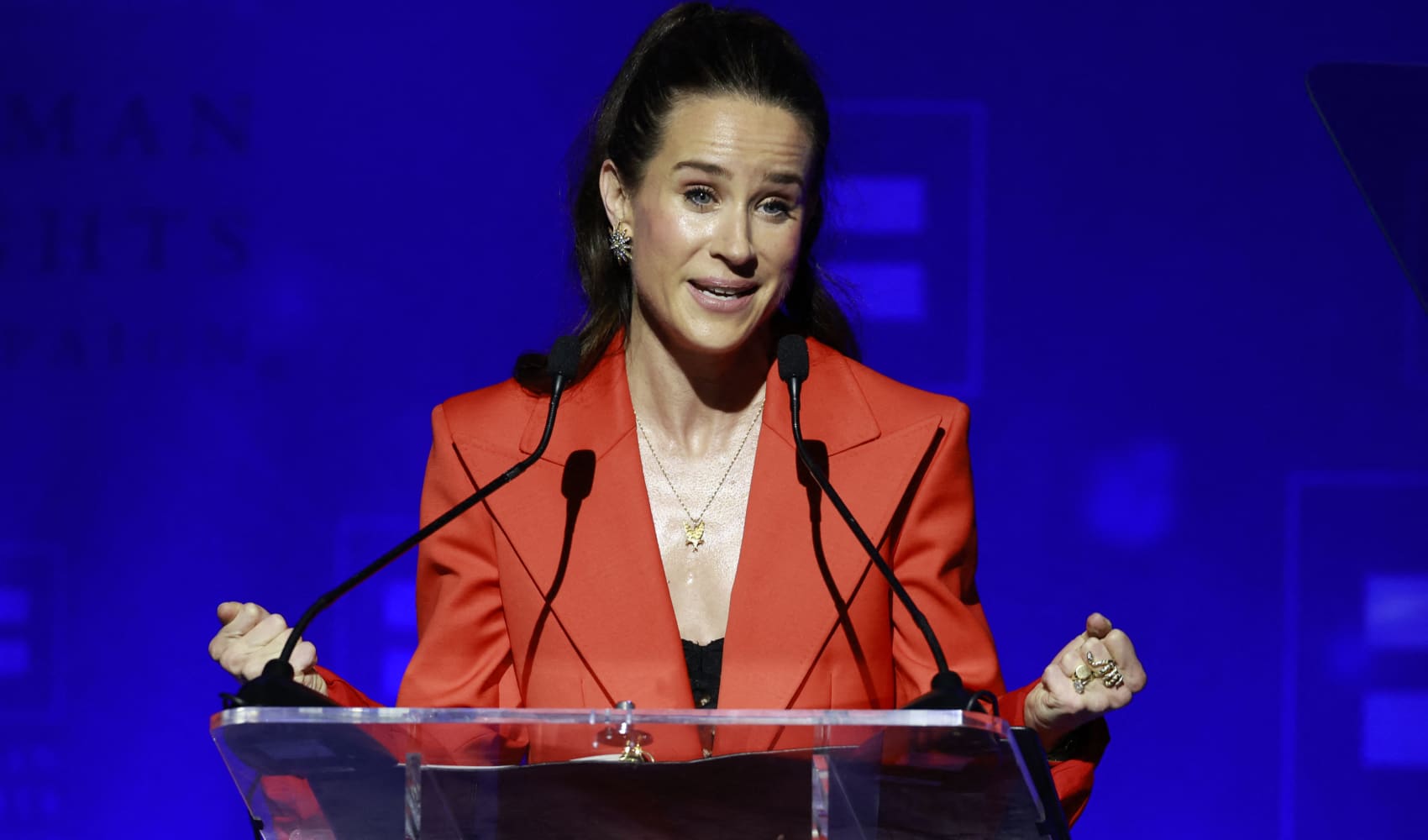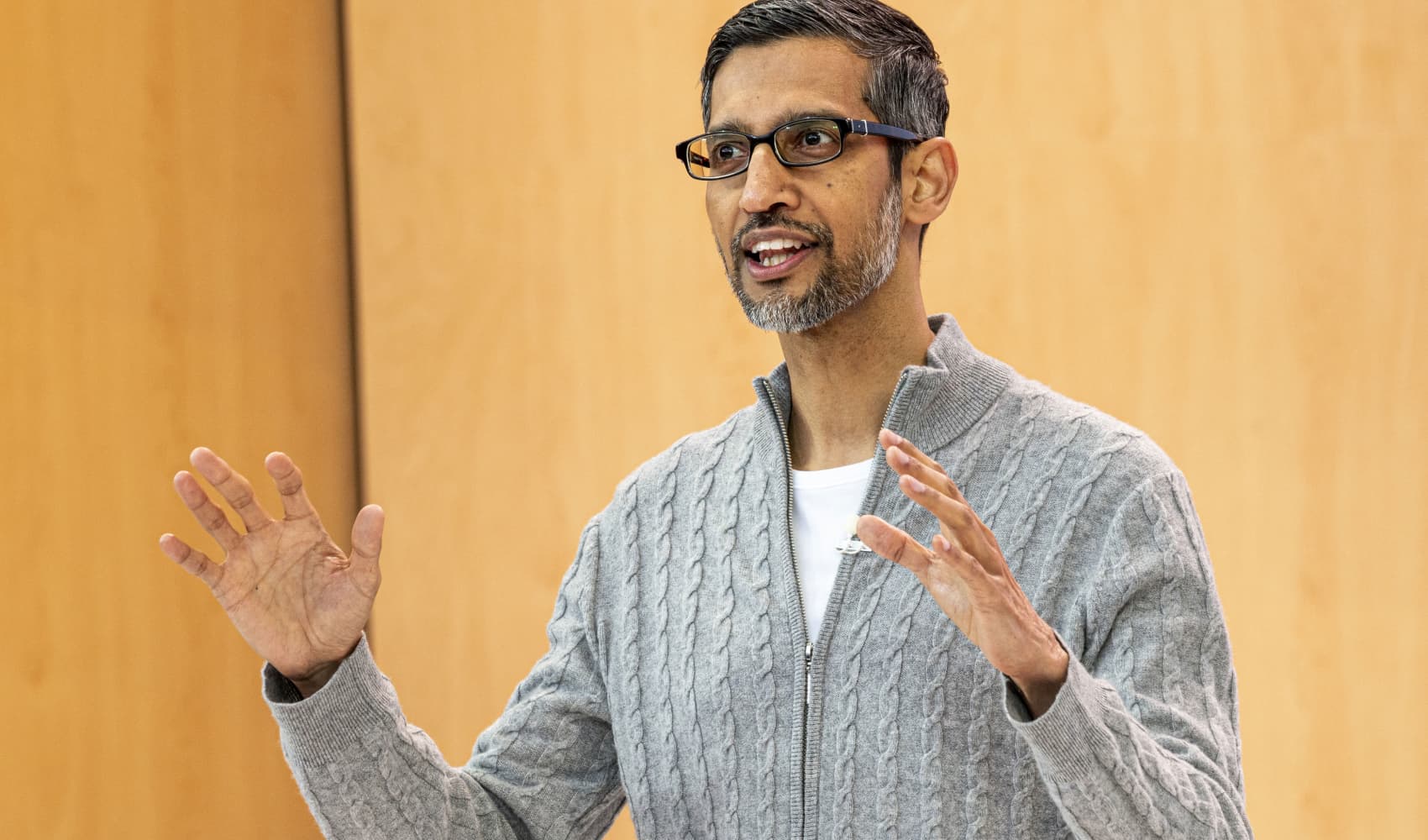
- U.S. grocery delivery firm Gopuff is acquiring British competitor Dija to expand into Europe.
- Dija was founded just eight months ago by former employees of food delivery firm Deliveroo.
- Grocery apps have grown rapidly over the past year, aided by billions of dollars in venture capital.
LONDON -- American grocery delivery start-up Gopuff on Thursday agreed to buy Dija, a British competitor founded just eight months ago.
Gopuff said the move would help it expand into Europe, by establishing a larger presence in the U.K. and entering France and Spain.
The company acquired Fancy, a similar start-up based in Britain, just three months ago.
We're making it easier for you to find stories that matter with our new newsletter — The 4Front. Sign up here and get news that is important for you to your inbox.
Founded in December by former employees of U.K. food delivery firm Deliveroo, Dija is one of a new crop of start-ups promising to ship groceries to people's doors in a matter of minutes.
These companies have grown rapidly over the past year, aided by billions of dollars in venture capital. Dija has raised $20 million in seed money from Index Ventures, Blossom Capital and Creandum.
Other competitors include Getir, a Turkish company recently valued at $7.5 billion, German firms Gorillas and Flink, and British start-ups Zapp and Weezy.
Money Report
Grocery delivery start-ups have flourished in the Covid-19 pandemic, as people took to online platforms to order their essentials rather than stores. A number of European food delivery firms, including Delivery Hero and Deliveroo, have made big investments in grocery shopping.
Dija and its rivals use what's known as "dark stores," small warehouses where couriers go to collect and deliver items ordered by customers. The companies buy products wholesale and sell them through an app, often at a premium to supermarket prices.
Industry experts have questioned the sustainability of the upstarts' business models. The market is heavily crowded and requires heaps of cash to gain scale.
"The amount of money that's being put against this opportunity is grossly disproportionate to the size of the opportunity," Luke Jensen, CEO of Ocado Solutions, a unit of U.K. grocery tech pioneer Ocado, told CNBC earlier this year.
"I suspect there will inevitably be a lot of consolidation among these players," he added.
It looks like the industry is already beginning to consolidate. Getir recently acquired a competitor in southern Europe called BLOK. And Flink reportedly attracted takeover interest from Amazon and Gopuff.
Gopuff's acquisition of Dija is expected to complete within 30 days, the U.S. company said. The financial terms were not disclosed. It's an unusually rapid exit for a venture-backed start-up.
The deal is expected to give Gopuff a much larger reach in Europe, operating about 40 dark stores and employing 200 staff.
"Combining Dija's team of industry veterans, extensive infrastructure, and local expertise will complement Gopuff's proprietary technology and unique customer experience, and advance our ability to scale rapidly as we create a leading platform in Europe," said Daniel Folkman, Gopuff's senior vice president of business.
A Dija spokesperson told CNBC there would be no layoffs at the company as a result of the deal. "Everyone will be keeping their jobs," they said.
Gopuff, which is backed by SoftBank, last month raised $1 billion in a financing round valuing the Philadelphia-based company at $15 billion.






